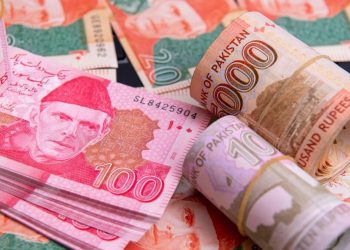Saqib Malik, is a Pakistani Doctor based in New York for the past 7 years. He’s a Specialist in Infectious Diseases who also has a degree in Internal Medicine as well as Molecular Biology, Genetics and Biochemistry. We got in touch with him because he’s been right in the center of the battlefield fighting Covid-19 with all the front liners and some 20,000 deaths in the first 2 months.
Our conversation with Saqib Malik has further highlighted the seriousness of the situation in the USA and how the situation will continue to deteriorate if Pakistani’s don’t continue to practice safety and take the necessary precautions.

COVID-19: INTERVIEW WITH INFECTIOUS DISEASE SPECIALIST SAQIB MALIK
SiddySays: How can one protect themselves from Covid-19?
Continue practicing social distancing and abide by the lock down. We don’t have any solutions yet, so it’s wise to stay at home and protect yourselves and your loved ones.
SiddySays: How easy is it to catch Covid-19?
It’s very easy to test positive for Covid-19 because we haven’t been able to contain it. It’s relatively air-borne, but we’re not certain for how long the particles/droplets stay in the air or the surface when someone who has Covid-19 sneezes or coughs. The most common places are door knobs, door handles etc.
SiddySays: Is fever a sure shot sign that one has Covid-19?
No. You might not have fever, but have other symptoms.
SiddySays: Do the symptoms vary from person to person?
Yes, they vary. Some people have reported loss of the sense of smell and taste, while others have not.
SiddySays: What are the symptoms that I should look for if I fear that I’ve been exposed to someone with Covid-19?
- fever
- swelling in one leg (a symptom of DVT)
- Shortness of breath while you walk or sit
- cough
- diarrhea
- abdominal pains
- severe body aches
- lethargy
- Diabetics may experience uncontrolled blood sugar levels. People with pre-existing cardiovascular disease may experience strokes and heart attacks because covid causes clots to form
SiddySays: If one tests positive for Covid-19, what is the first few things that one should do?
First and foremost isolate yourself and monitor your own situation closely. Being short of breath with exertion is a warning sign you may need oxygen; being short of breath at rest is a sign you need oxygen and medical attention immediately.
In people with pre-existing cardiac disease and diabetes, we have seen patients coming in with stroke-like symptoms as well as symptoms of abnormal blood clotting like heart attacks, blood clots in the legs and lungs and other complications.
SiddySays: Why has there been a surge in deaths of people between ages 25-35 years?
We don’t exactly know why we saw some many young people die while others were mild or asymptomatic. Some of them had medical history most commonly obesity , high blood pressure, kidney disease and diabetes but there were many with no medical history who did very poorly as well. In my first week I saw a 34 year old healthy young man succumb to respiratory failure which was very scary.
In the Older age groups , there was a tendency for the people with obesity , diabetes, cardiovascular disease and kidney disease to have very poor outcomes. Elderly individuals who were very frail also had very bad outcomes.
SiddySays: If one is asymptomatic, will they infect others around them?
We still don’t understand why some some people have no symptoms and others have full blown severe disease. Asymptomatic people are a very *major*source of spread of COVID and explain how the disease essentially traveled the entire world and we could not check it really. Having symptoms may make you more likely to spread it but being asymptomatic you will still infect others.
SiddySays: What are the most common signs of Covid-19 seen in children?
It’s the same for everyone, however in children the symptoms of Covid-19 have been similar to that of Multisysmtem Inflammatory Syndrome (MIS-C) and we aren’t sure why.
- wide spread rash over the body
- high fevers
- red eyes
- cracking and swelling of skin in the lips, hands and feet
- tender and swollen lymph nodes
- lethargy
- altered mental status
- abdominal pain
- diarrhea
SiddySays: Pakistani’s have been trying an abundance of desi remedies, so are there any secret tips to building immunity?
Honestly, nothing’s been proven, therefore none of these totkas will work. The only way to protect yourself is social distancing and living in quarantine.
SiddySays: What is the recovery period from Covid-19?
Some patients had a very prolonged course of illness with a disease process lasting as long as 6-8 weeks when they were sick enough to require hospital admission. That is very patient dependent but I imagine would be a very slow process . In addition we saw a lot of patients who did fine the first several weeks and then came in with respiratory failure up to a month after having a positive test and doing alright at home. For relatively mild cases it may be shorter but for the ones who were sick, it can be a very prolonged bout of illness.
SiddySays: In your opinion, what do you think how’s the situation in Pakistan at the moment?
Honestly, I’m petrified. The USA has a strong health care system, but we broke down, so I shudder to think what it’s been like in Pakistan. I have family and friends who are Doctors, and I’m worried about them. Pakistani hospitals are in really bad shape, there are so many patients to look after, people are dying in hallways while waiting because nobody has time. And this is the situation all around the world. Also, our ICU’s are flooded with patients and we have about 2 nurses for 10 beds – we’re understaffed. And there’s a whole sect of weak, poor and disabled people that has been undetected and wiped out. Unfortunately, Pakistan hasn’t been able to contain Covid-19 with parameters like other countries have.




